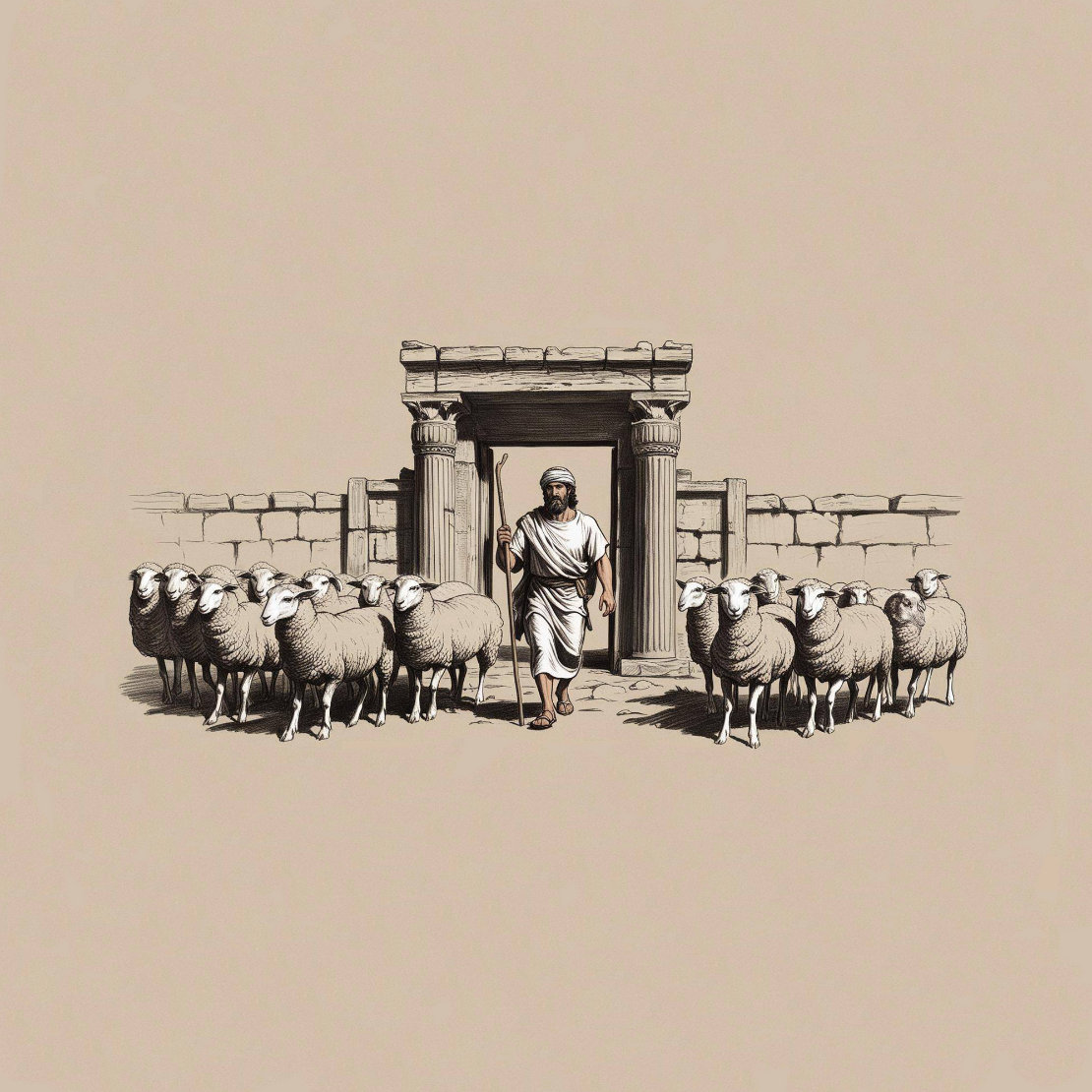Psalm 100/Home: Difference between revisions
William.Chan (talk | contribs) (Created page with "{{#set: Banner Image|Psalm 100 banner image.jpg}} {{#tweekihide:sidebar-right}} <!-- no sidebar will change dimensions --> {{NavigationButton}} {{Psalm/BannerHome |Title= His Joyful Flock }} {{Psalm/HomePage/Body |LeftPanel=<p> Lorem ipsum dolor sit amet, consectetur adipiscing elit, sed do eiusmod tempor incididunt ut labore et dolore magna aliqua. Ut enim ad minim veniam, quis nostrud exercitation ullamco laboris nisi ut aliquip ex ea commodo consequat. Duis au...") |
No edit summary |
||
| Line 7: | Line 7: | ||
{{Psalm/HomePage/Body | {{Psalm/HomePage/Body | ||
|LeftPanel=<p> | |LeftPanel=<p> Ps 100 opens with the Hebrew words ''mizmor le todah''. ''Mizmor'' - a psalm, ''le'' - for, ''todah''… | ||
''Toda'' (תוֹדָה) is the word for thanksgiving, for giving thanks. So we could say that Ps 100 is a psalm for… '''thanksgiving'''. | |||
But ''toda'' could also have a specific meaning, referring to an ancient Israelite sacrifice known as the ''toda'', the thank offering, where animals were sacrificed to give thanks to YHWH. So Ps 100 could also be a “psalm for… '''a thank offering'''.” | |||
Now these thank offerings were usually offered as part of a joyful ceremony, a thanksgiving celebration, with songs and rituals and a big celebration… | |||
Based on this, we might then say that Ps 100 is a psalm for… '''a thanksgiving celebration'''… | |||
All three meanings are present, and together they take us to ancient Jerusalem, to the Israelite temple, where a great crowd of people and priests, and maybe also a king, would be gathered outside the gates, for a thanksgiving celebration, with a thank offering, and hearts full of thanksgiving. | |||
</p> | |||
|Snippets= | |Snippets= | ||
{{Psalm/Snippet | {{Psalm/Snippet | ||
Revision as of 10:52, 1 April 2025
Ps 100 opens with the Hebrew words mizmor le todah. Mizmor - a psalm, le - for, todah… Toda (תוֹדָה) is the word for thanksgiving, for giving thanks. So we could say that Ps 100 is a psalm for… thanksgiving. But toda could also have a specific meaning, referring to an ancient Israelite sacrifice known as the toda, the thank offering, where animals were sacrificed to give thanks to YHWH. So Ps 100 could also be a “psalm for… a thank offering.” Now these thank offerings were usually offered as part of a joyful ceremony, a thanksgiving celebration, with songs and rituals and a big celebration… Based on this, we might then say that Ps 100 is a psalm for… a thanksgiving celebration… All three meanings are present, and together they take us to ancient Jerusalem, to the Israelite temple, where a great crowd of people and priests, and maybe also a king, would be gathered outside the gates, for a thanksgiving celebration, with a thank offering, and hearts full of thanksgiving.
בַּמֵּתִים חָפְשִׁי
[I am] an outcast among the dead.
verse 6
וַאֲנִי אֵלֶיךָ יְהוָה שִׁוַּעְתִּי
But I have been crying out to you for help, YHWH.
verse 14






